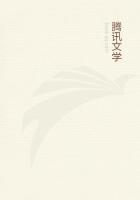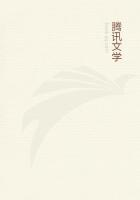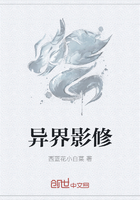I thought of Chowbok, and felt how useful he had been to me, and in how many ways I was the loser by his absence, having now to do all sorts of things for myself which he had hitherto done for me, and could do infinitely better than I could. Moreover, I had set my heart upon ****** him a real convert to the Christian religion, which he had already embraced outwardly, though I cannot think that it had taken deep root in his impenetrably stupid nature. I used to catechise him by our camp fire, and explain to him the mysteries of the Trinity and of original sin, with which I was myself familiar, having been the grandson of an archdeacon by my mother's side, to say nothing of the fact that my father was a clergyman of the English Church. I was therefore sufficiently qualified for the task, and was the more inclined to it, over and above my real desire to save the unhappy creature from an eternity of torture, by recollecting the promise of St. James, that if any one converted a sinner (which Chowbok surely was) he should hide a multitude of sins. I reflected, therefore, that the conversion of Chowbok might in some degree compensate for irregularities and short-comings in my own previous life, the remembrance of which had been more than once unpleasant to me during my recent experiences.
Indeed, on one occasion I had even gone so far as to baptize him, as well as I could, having ascertained that he had certainly not been both christened and baptized, and gathering (from his telling me that he had received the name William from the missionary) that it was probably the first-mentioned rite to which he had been subjected. I thought it great carelessness on the part of the missionary to have omitted the second, and certainly more important, ceremony which I have always understood precedes christening both in the case of infants and of ***** converts; and when I thought of the risks we were both incurring I determined that there should be no further delay. Fortunately it was not yet twelve o'clock, so I baptized him at once from one of the pannikins (the only vessels I had) reverently, and, I trust, efficiently. Ithen set myself to work to instruct him in the deeper mysteries of our belief, and to make him, not only in name, but in heart a Christian.
It is true that I might not have succeeded, for Chowbok was very hard to teach. Indeed, on the evening of the same day that Ibaptized him he tried for the twentieth time to steal the brandy, which made me rather unhappy as to whether I could have baptized him rightly. He had a prayer-book--more than twenty years old--which had been given him by the missionaries, but the only thing in it which had taken any living hold upon him was the title of Adelaide the Queen Dowager, which he would repeat whenever strongly moved or touched, and which did really seem to have some deep spiritual significance to him, though he could never completely separate her individuality from that of Mary Magdalene, whose name had also fascinated him, though in a less degree.
He was indeed stony ground, but by digging about him I might have at any rate deprived him of all faith in the religion of his tribe, which would have been half way towards ****** him a sincere Christian; and now all this was cut off from me, and I could neither be of further spiritual assistance to him nor he of bodily profit to myself: besides, any company was better than being quite alone.
I got very melancholy as these reflections crossed me, but when Ihad boiled the ducks and eaten them I was much better. I had a little tea left and about a pound of tobacco, which should last me for another fortnight with moderate smoking. I had also eight ship biscuits, and, most precious of all, about six ounces of brandy, which I presently reduced to four, for the night was cold.
I rose with early dawn, and in an hour I was on my way, feeling strange, not to say weak, from the burden of solitude, but full of hope when I considered how many dangers I had overcome, and that this day should see me at the summit of the dividing range.
After a slow but steady climb of between three and four hours, during which I met with no serious hindrance, I found myself upon a tableland, and close to a glacier which I recognised as marking the summit of the pass. Above it towered a succession of rugged precipices and snowy mountain sides. The solitude was greater than I could bear; the mountain upon my master's sheep-run was a crowded thoroughfare in comparison with this sombre sullen place. The air, moreover, was dark and heavy, which made the loneliness even more oppressive. There was an inky gloom over all that was not covered with snow and ice. Grass there was none.
Each moment I felt increasing upon me that dreadful doubt as to my own identity--as to the continuity of my past and present existence--which is the first sign of that distraction which comes on those who have lost themselves in the bush. I had fought against this feeling hitherto, and had conquered it; but the intense silence and gloom of this rocky wilderness were too much for me, and I felt that my power of collecting myself was beginning to be impaired.

